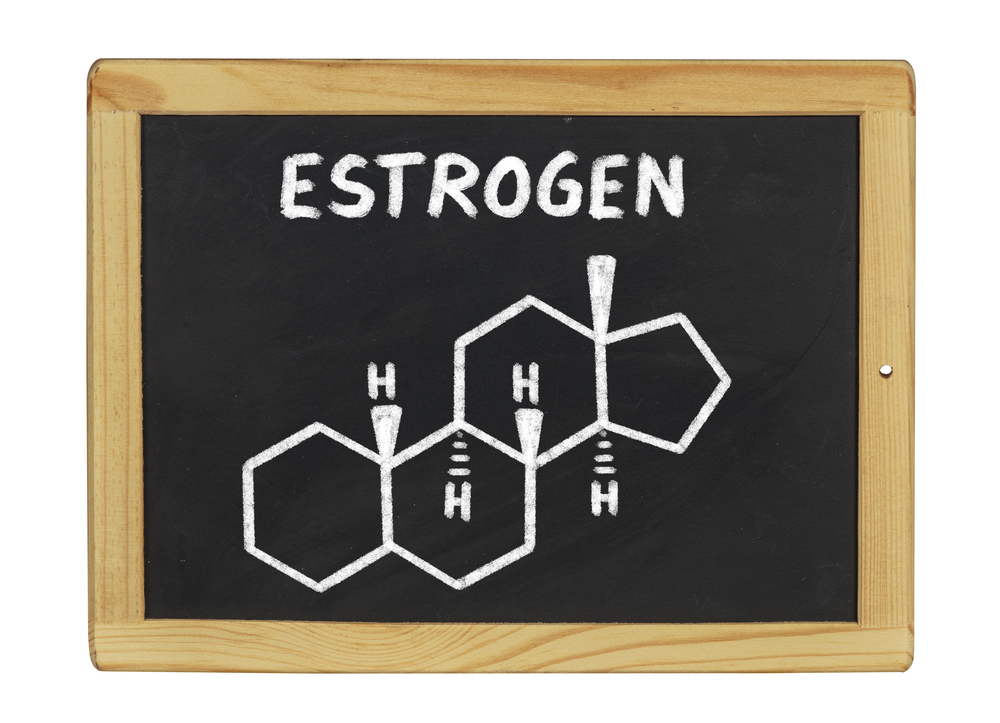Hormone balance plays a key role in men’s health, as the right amount of estrogen, testosterone and other sex hormones is essential for many functions in the body. Excessive estrogen in men can lead to serious health problems such as infertility and gynecomastia. Balancing these hormones is important not only for physical health, but also for mental well-being because they also interact with a person’s neural activity and emotional state.
The role of estrogen in men
Although estrogen is often thought of as a female hormone, it plays a critical role in numerous biological functions in men. Research shows that estrogen is necessary for proper male sexual functioning, including erectile function, libido regulation, and sperm production. Proper estrogen balance is also a key factor in maintaining optimal bone density, heart health, and mental health.
Symptoms of high estrogen in men
Symptoms of high estrogen levels in men include:
- Gynecomastia: enlarged breast tissue
- Erectile dysfunction (ED): inability to have or maintain an erection
- Infertility: inability to impregnate a partner
- Mood changes: Mood changes that may include depressed thoughts and anxiety
Studies have found that higher estrogen levels in men are associated with depression, which can negatively affect their mental and physical health. Complications associated with persistently high estrogen levels can include high blood pressure , heart problems, irritability, low calcium, and a tendency to form blood clots. This hormonal imbalance can also worsen epilepsy and asthma symptoms.
Causes of high estrogen
High estrogen in men can result from one or more of the following risk factors:
- Taking certain medications
- Hormonal therapy
- High percentage of body fat and obesity
- Excessive alcohol intake
- Stress
- Liver problems
- Chemicals that disrupt the body’s endocrine system
- Certain types of tumors
Synthetic xenoestrogens, chemicals that act like estrogen in the human body, can affect estrogen levels in men. Examples of such chemicals include phthalates and bisphenol A (BPA), which are present in some plastics, household cleaning products, pesticides, and some shampoos or soaps.
6 Natural Ways to Lower Estrogen
#1. Dietary changes
Eating nutritious foods and avoiding unhealthy foods promotes hormonal balance in men. Dietary changes to consider include:
- Reduce your alcohol consumption, as studies show that excessive alcohol use can increase estrogen in men.
- Choose organic meats and hormone-free dairy foods to minimize estrogen activity.
- Limit your intake of soy foods (tofu, soybeans, tempeh, etc.) and other foods high in estrogen.
- Stick to a well-balanced diet low in fat and high in fiber.
- Choose organic produce to minimize exposure to pesticides.
- Choose whole foods over foods that are highly refined/processed.
#2. Physical activity
Regular exercise can also reduce estrogen levels and improve hormonal balance in men . Studies show that exercise helps increase testosterone and decrease estrogen levels. Aim for at least 30 minutes of exercise most days of the week to achieve optimal hormonal balance.
#3. Weight management and body fat reduction
Several studies have demonstrated a link between body fat and estrogen, as fat tissues secrete estrogen in the human body. Ways to maintain a healthy body weight and reduce estrogen in men include:
- Eat plenty of fruits, vegetables, nuts, seeds, and other high-fiber foods
- Eat plenty of high protein foods (lean organic meats, fish, chicken, eggs, cottage cheese, yogurt, etc.)
- Exercise every day
- Get enough sleep (at least 7-9 hours)
- Minimize stress
- Avoid excessive alcohol consumption
- Drink water frequently throughout the day
- Weigh yourself regularly to make sure your weight stays within a healthy range.
#4. Reducing exposure to endocrine disruptors
Avoid exposure to plastics or other products that may release chemicals that affect estrogen levels in men. Examples of endocrine disruptors include:
- Bisphenol A (BPA): a plastic used in food packaging, manufacturing and some toys.
- Phthalates: compounds found in some cosmetic products (hair sprays, aftershaves, nail polishes, shampoos, cleansers, fragrances, etc.)
- Atrazine: A herbicide used to control weeds.
- Perfluoroalkyl and polyfluoroalkyl substances (PFAS): chemicals used in the production of some types of paper
- Phytoestrogens: substances with estrogen-like activity (found in soy foods).
- Polybrominated diphenyl ethers (PBDEs): chemicals used to make flame retardants for carpets and furniture foam
Ways to reduce exposure to these products include:
- Look for BPA-free plastics
- Choose organic foods whenever possible
- Use non-toxic dishes and cosmetics
- Limit exposure to household cleaning chemicals or choose natural cleaners
- Limit soy-based foods (tofu, tempeh, soybeans, etc.)
#5. Stress management
Chronic stress negatively affects your hormones, including the balance of estrogen, cortisol and progesterone. Eliminate constant stressors and try relaxation techniques such as yoga, tai chi, meditation, nature walks, regular exercise, massage, acupuncture or deep breathing.
#6. Cut back on alcohol
Drinking alcohol can have an adverse effect on the balance of sex hormones in men. Alcohol consumption can increase estrogen levels in the body and decrease the body’s ability to metabolize (break down) this hormone. Estrogen, when at elevated levels in men, can lead to a variety of health problems, including infertility and gynecomastia (breast enlargement).
Diagnosing high estrogen levels
If you have new or unusual symptoms and suspect you are exposed to high estrogen or low testosterone, it is important to see a doctor for professional evaluation and advice.
When to see a doctor
Men should see their health care professional if they experience the following symptoms: infertility , erectile dysfunction (ED), breast enlargement, fatigue, decreased muscle mass and strength, thinning hair, depression, or increased body fat. These symptoms can be related to low testosterone levels or high estrogen levels.
Testing for estrogen levels
To diagnose high estrogen levels in men, the doctor will perform a thorough medical examination and talk about the patient’s medical history. Laboratory tests are often used, which include measuring the levels of estrogen, testosterone and other hormones. Patients may be referred for a blood test, urine test or saliva test, leaving a sample for laboratory analysis.
Among the types of hormone tests that may be used are:
- Estradiol (E2): a blood test to measure estrogen levels
- Testosterone: A blood test to measure testosterone levels
- Saliva Profile: A saliva test that assesses levels of estrogen, testosterone, progesterone, cortisol and DHEA-S
Laboratory tests will help determine the different forms of estrogen, including estrone (E1), estradiol (E2), and estriol (E3), which may have different effects on the body. Therefore, more than one test may be needed to establish trends over time and make an accurate diagnosis.
In conclusion:
High estrogen occurs for a variety of reasons, including obesity , unhealthy habits, medical conditions, exposure to toxins, and taking certain medications. Early detection of high estrogen, which can be accompanied by low testosterone levels, is vital to preventing or treating gynecomastia, ED, infertility and other symptoms of male hormone imbalance. A healthy lifestyle and the implementation of various strategies can reduce estrogen in men to restore their quality of life.
Sources
- 3 ways to increase estrogen naturally. (2023, June 2). www.uclahealth.org. https://www.uclahealth.org/news/3-ways-increase-estrogen-naturally
- Anderson, S. (2022, July 22). 5 conditions that make it harder to lose weight. Rupa Health. https://www.rupahealth.com/post/cant-lose-weight-these-5-medical-problems-may-be-why
- Bertagna, B. (2024b, January 11). The science behind meditation and sleep: How mindfulness practices improve sleep quality. Rupa Health. https://www.rupahealth.com/post/the-science-behind-meditation-and-sleep-how-mindfulness-practices-improve-sleep-quality
- Blair, A. (2022, July 13). Hormones in beef: Myths vs. facts. Extension.sdstate.edu. https://extension.sdstate.edu/hormones-beef-myths-vs-facts
- Carruba, G., Granata, OM, Pala, V., Campisi, I., Agostara, B., Cusimano, R., Ravazzolo, B., & Traina, A. (2006). A traditional Mediterranean diet decreases endogenous estrogens in healthy postmenopausal women. Nutrition and Cancer, 56(2), 253–259. https://doi.org/10.1207/s15327914nc5602_18
- Chadid, S., Barber, JR, Rohrmann, S., Nelson, WG, Yager, JD, Kanarek, NF, Bradwin, G., Dobs, AS, McGlynn, KA, & Platz, EA (2019). Age-Specific serum total and free estradiol concentrations in healthy men in US nationally representative samples. Journal of the Endocrine Society, 3(10), 1825–1836. https://doi.org/10.1210/js.2019-00178


